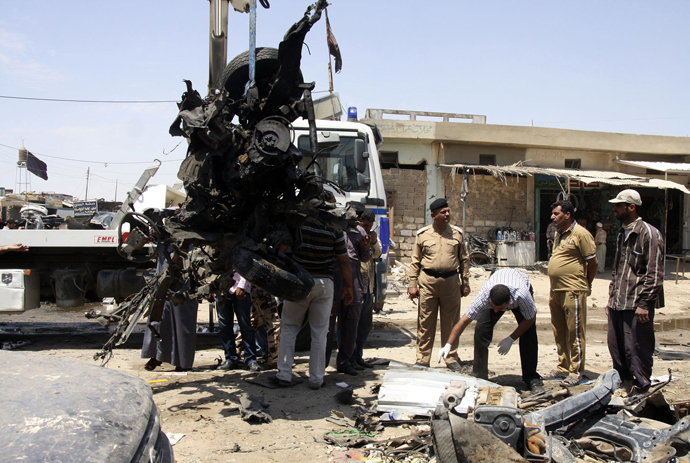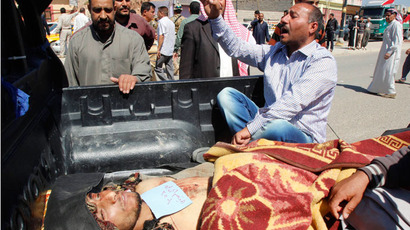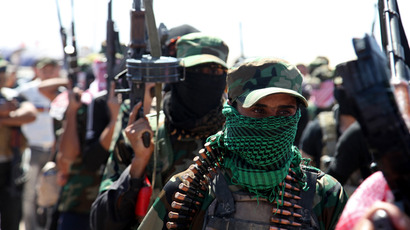String of violent attacks rock Iraq, killing 23
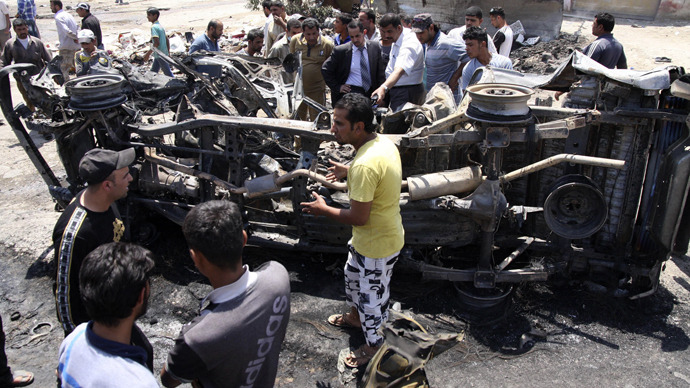
At least 23 people have been killed and dozens injured in a spate of car bombings and shootings in Shia areas of southern Iraq. The past week has seen clashes as a result of a raid on a Sunni protest camp last Tuesday, which left 200 people dead.
An army raid on a Sunni government protest camp in the northern town of Hawija - near Kirkuk - last week sparked a wave of violence across the country.
In the latest attack two bombs went off in the town of Amara, 300 km southeast of Baghdad, killing nine people and wounding dozens more, striking a market and a place where people had gathered to look for work.
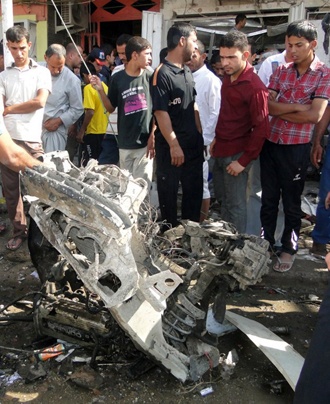
Other bombs went off at markets in Diwaniyah and Kerbala, and in
the Shia neighborhood of Mahmudiya, a mainly Sunni town.
“I was preparing to go to work when a big explosion shook my house and broke the glass in all the windows. I ran outside, the explosion was near my house and bodies were everywhere,” Woody Jasim, a resident of Diwaniyah, told Reuters.
Meanwhile in Mosul, 390 km north of Baghdad, gunmen clashed with the army early on Monday, killing two soldiers and wounding three others, Reuters reports citing military sources. Also one soldier was shot dead and another was wounded by a sniper in eastern Baghdad, police say.
The attacks are a violent revenge response to the Shia dominated government and army, which carried out the raid last week.
The protesters were denouncing the authorities for allegedly targeting the Sunni community and were calling for the resignation of Prime Minister Nuri al-Maliki, who is a Shia.
On Saturday, al-Maliki said that sectarianism is again plaguing Iraq, and in an apparent reference to Syria, said “because it began in another place in this region”.
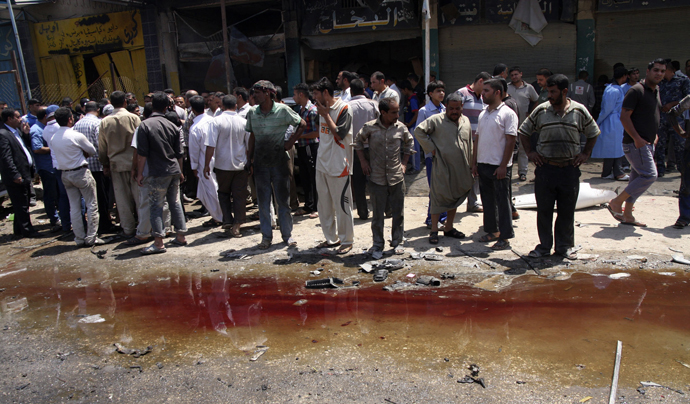
However, Dirk Adriaensens, from the charity SOS Iraq, told RT
that the violence is not driven by sectarianism but by the
appalling conditions in Iraq, which have now been part of
everyday life for the past 10 years.
“After 10 years of occupation, because we consider this to be still an occupation, there are still no basic services, people are locked up without charges, and they are tortured. Woman, children and men are being raped. That’s why the protest started by the way,” he said.
He continued that unemployment was everywhere, that there is no health care, the education system has collapsed and the media have been very weak about covering the nature of these protests.
